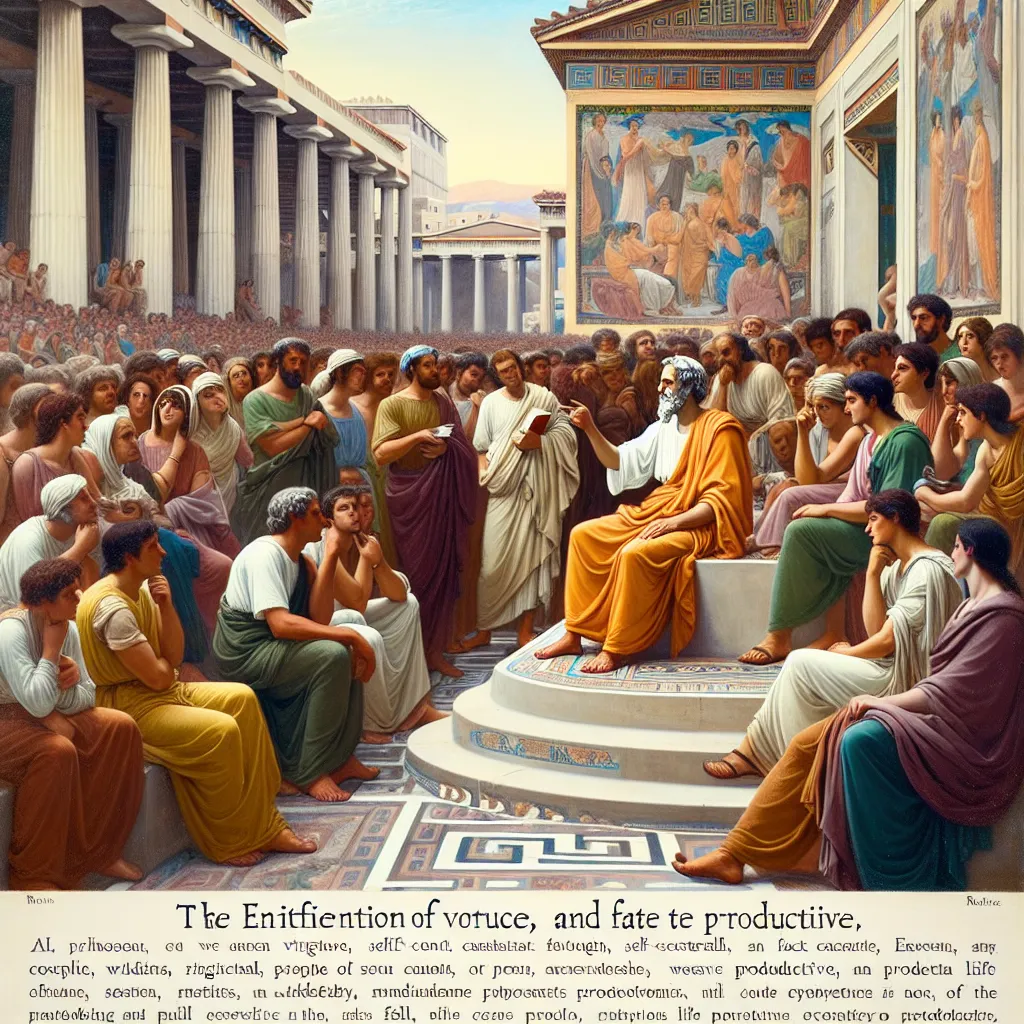Out of all the ancient Hellenistic philosophies, Stoicism stands out today. It’s all over YouTube, podcasts, and books. You might have read Marcus Aurelius’ “Meditations.” There are even conferences about using Stoicism to boost performance in the corporate world. Unfortunately, much of what’s popular now is a shallow “Broicism,” a version that focuses on productivity or success. It doesn’t capture the depth of what Stoicism is really about.
Stoicism began in ancient Greece during the Hellenistic period. It was one of the most popular schools of thought until the rise of Neoplatonism. It started in Athens, and its very name comes from the “Stoa Poikile” or “painted porch,” a literal place near the marketplace where early Stoics gathered. The founding figure is Zeno of Citium from Cyprus, who studied under various philosophers including the Cynic Crates.
After Zeno, significant Stoic leaders included Cleanthes and Chrysippus. Chrysippus, in particular, was a major figure in defining classical Stoicism. He wrote extensively, although none of his works survived, we know his ideas from quotes and references.
Stoicism is often lumped together with other Hellenistic philosophies like Skepticism, Epicureanism, and Cynicism. They all looked up to Socrates but interpreted his work differently. For instance, the Skeptics believed that humans can’t achieve certainty about anything, while the Epicureans sought pleasure as the highest good.
The Stoics, however, believed only virtue is inherently good. Health, wealth, and pleasure were seen as “indifferent” – things that don’t inherently affect one’s happiness. The goal of life, according to Stoicism, is to live in agreement with nature. This means living according to reason and the natural order set by the “Logos,” an active, divine principle that organizes the cosmos.
Stoicism divides philosophy into three parts: logic, physics, and ethics. Logic is crucial, and Chrysippus contributed significantly to its development. Where Aristotelian logic focused on syllogisms, Stoic logic dealt with propositions. For example, a Stoic proposition might be “If it is day, there is light.”
Physically, the Stoics were materialists, believing everything is composed of matter, even the soul and God. The universe operates according to rational, intelligent principles identified as the “Logos,” which is often equated with God. This leads to a deterministic view where everything is preordained.
Ethically, Stoicism centers on virtue and self-control. Stoics aim to align their lives with the rational order of the universe. They believe in staying indifferent to things outside our control. Marcus Aurelius, one of the Roman Stoics, emphasized living virtuously and accepting life’s events as the will of the Logos.
Today, the practical side of Stoic ethics is popularized on various platforms. The teachings encourage a moderate lifestyle, self-improvement, and focusing on controllable aspects of life. Cognitive Behavioral Therapy (CBT), a modern psychological treatment, draws from Stoic principles, particularly the idea that our judgments, not events themselves, affect our emotional health.
Stoicism also influenced later philosophies and religions. Its ideas of determinism and interconnectedness resurfaced in Neoplatonism and other esoteric traditions. Even the philosopher Spinoza showed Stoic influences in his work.
In summary, Stoicism is a profound philosophy that has impacted history and continues to offer valuable tools for modern life. It stresses living virtuously according to nature and reason, and its logic and ethical teachings remain relevant today. Whether you’re dealing with personal challenges or seeking to understand the world better, Stoicism offers a timeless framework to guide you.






